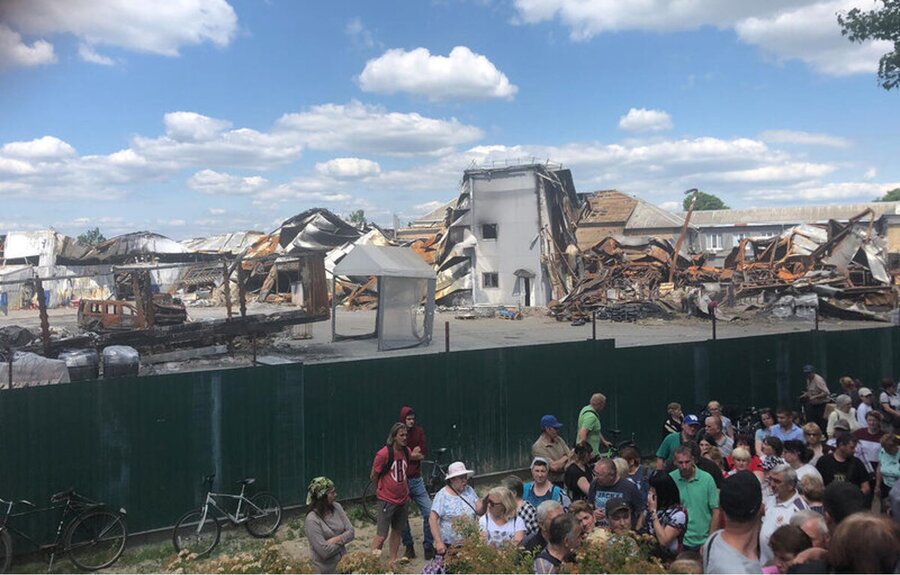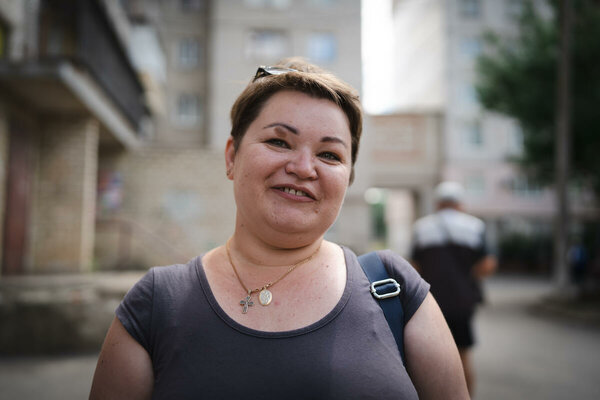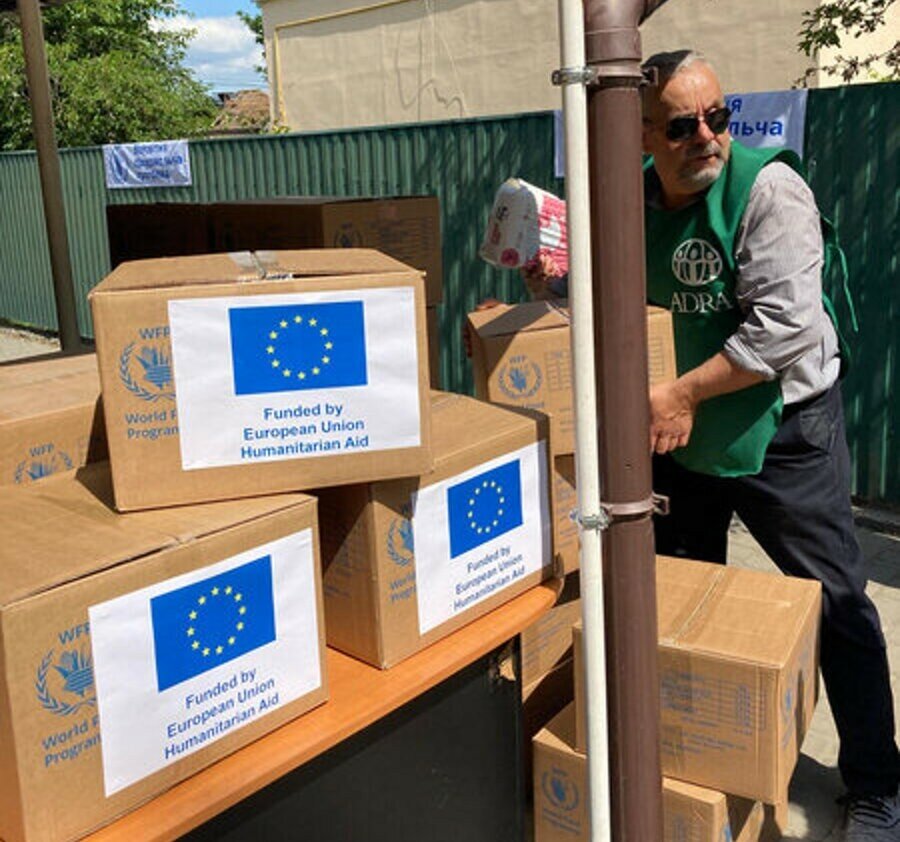EU support bolsters WFP’s response in Ukraine

At a distribution point in Irpin, in the Ukrainian oblast (administrative region) of Kyiv, which saw heavy fighting earlier this year, people whose lives have been turned upside down by the war receive regular food parcels to last them 30 days.
Among those collecting the packs is Valentyna Lakomska. She fled her home with her 2-year-old son and currently has no source of income.
“I never thought that I’d need to flee at 30 years old,” she says. “There is no work. If there is some, then wages are minimal, prices are crazy. We need food rations. We need the world’s support, both moral and financial.”
Packs typically contain rice, pasta, canned meat and vegetable oil. In Kyiv oblast and across other provinces, they are provided to people including those who lost their homes or jobs during the war; pensioners, people with disabilities and pregnant and breastfeeding women.
Valentyna is among 6 million people currently displaced inside Ukraine, while across Europe there are 6 million Ukrainian refugees. Some families have also remained in areas affected by fighting, being unable to move. In many cases, they have lost their jobs and livelihoods.

Liliia collected her food box from the World Food Programme (WFP) the day she celebrated her 41st birthday, in Druzhkivka, Donetsk oblast, only 30 to 40 kilometres from the front line. She lives with her mother, husband and her children.
“We have saved our entire lives to afford a home in this city,” she says. “We cannot move and leave everything behind.
“I was the manager of a grocery store, but my employer left the town because it’s too difficult to bring food into the region, and customers have become rarer.”
As her husband has also lost his income, the food pack is very welcome.
Thanks to support from donors, WFP has been able to scale up its emergency assistance rapidly since March, reaching 2.9 million people in July. WFP uses a flexible mix of food and cash to support people wherever they are, including in areas close to the front line.
While cash is prioritized where banks are accessible and markets are functioning, WFP continues to deliver food boxes where they are needed, as well as ready-to-eat rations in places where cooking gas supplies were damaged or destroyed. WFP also works with bakeries to deliver bread, in this way supporting the local economy.

The EU, through its Directorate-General for European Civil Protection and Humanitarian Aid Operations, contributed €43 million (US$43.8m) to WFP, supporting food and cash-based assistance across Ukraine as well as in neighbouring Moldova, which is currently hosting around 90,000 Ukrainian refugees.
To date, WFP has distributed over US$200 million in cash to displaced families across Ukraine. Cash assistance empowers recipients to make their own choices to meet their essential needs. People receive their cash within 72 hours of registering. Funding from donors like the EU has been vital in a country where war has left almost one in three households food-insecure.
“We have a clear mission here to support those families in greatest need with cash and food, in particular in hard-to-reach, frontline areas such as Donetsk, where people are most affected by the war and where food supply chains are often cut. The contributions we received from the European Union allow us to do just that,” says Matthew Hollingworth, WFP’s Emergency Coordinator in Ukraine.
“At the same time, we work through existing networks and supply chains so we can support and help to sustain, stabilize and, in some cases, restore systems that need to be functioning once WFP is no longer needed here.”


